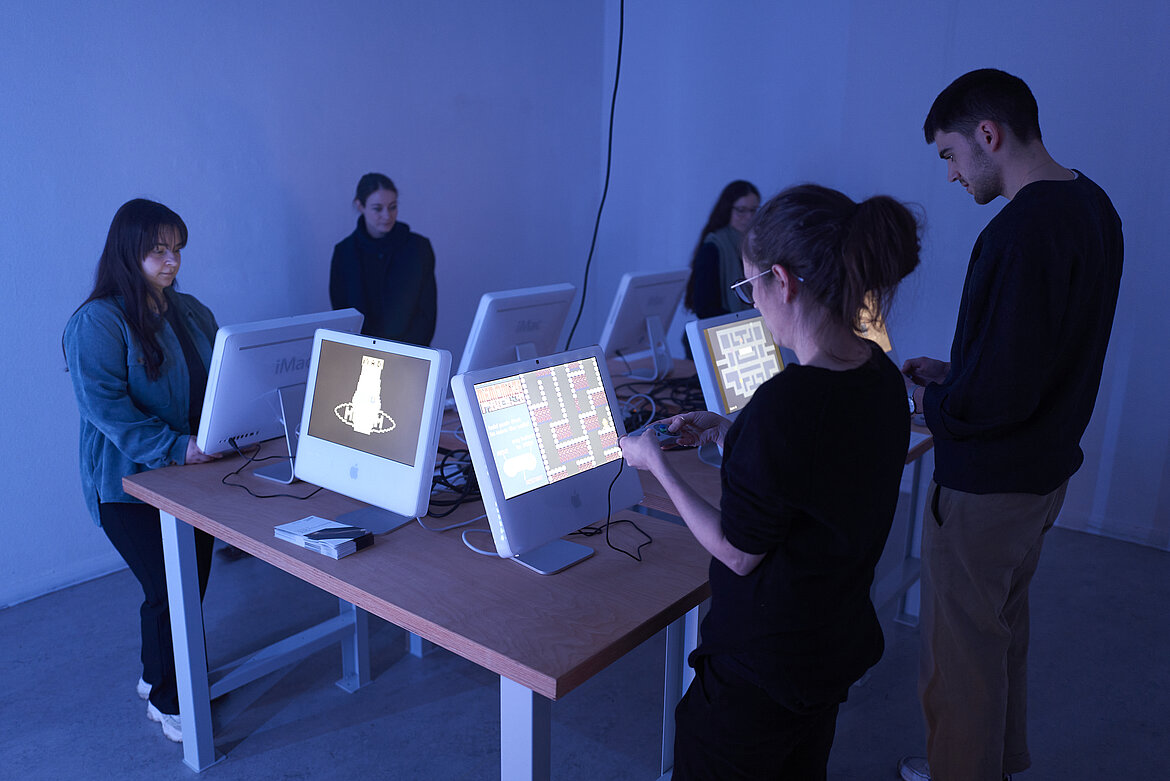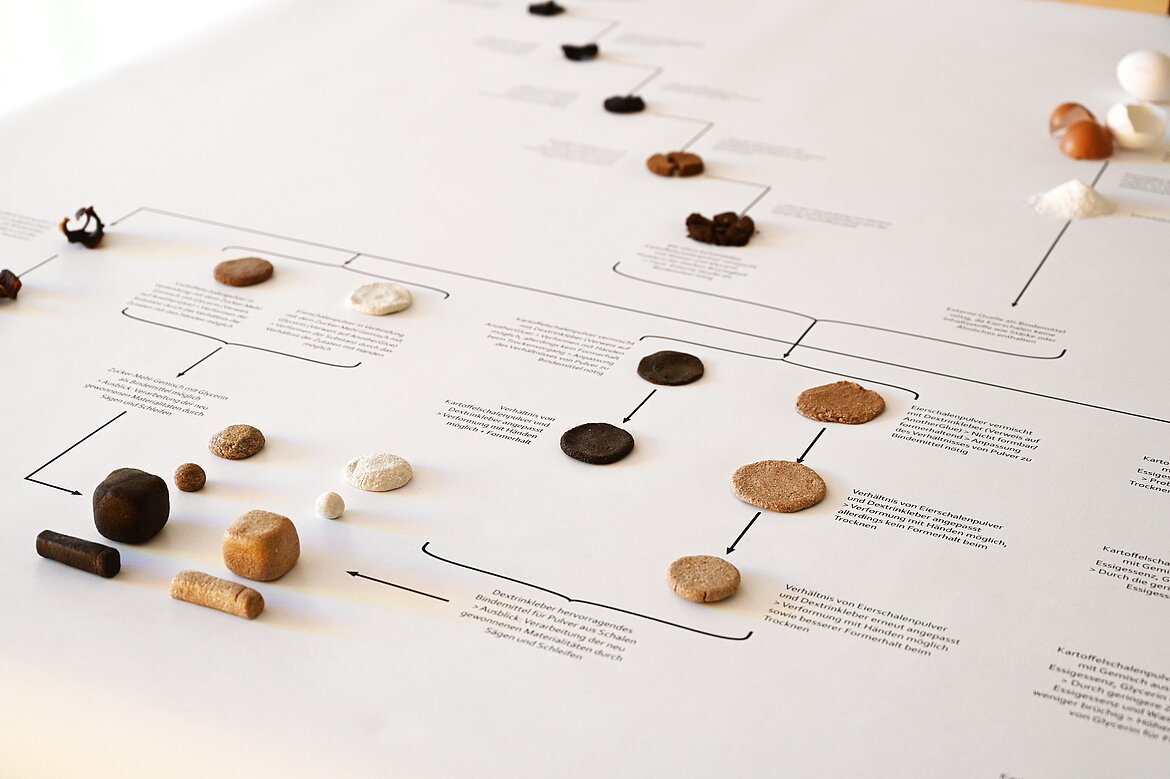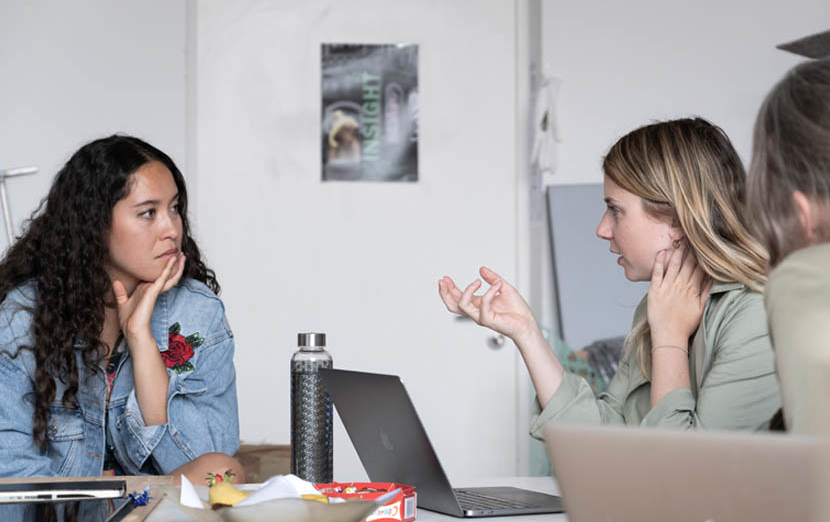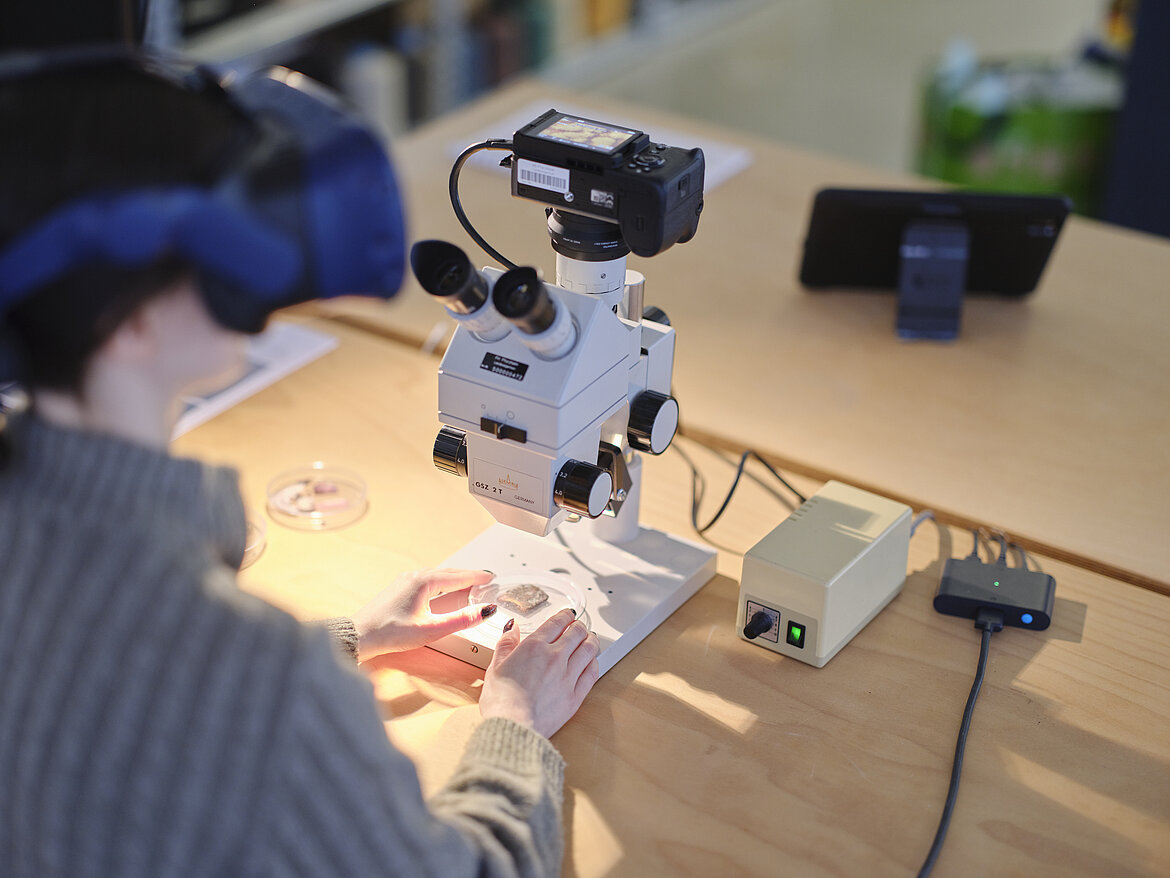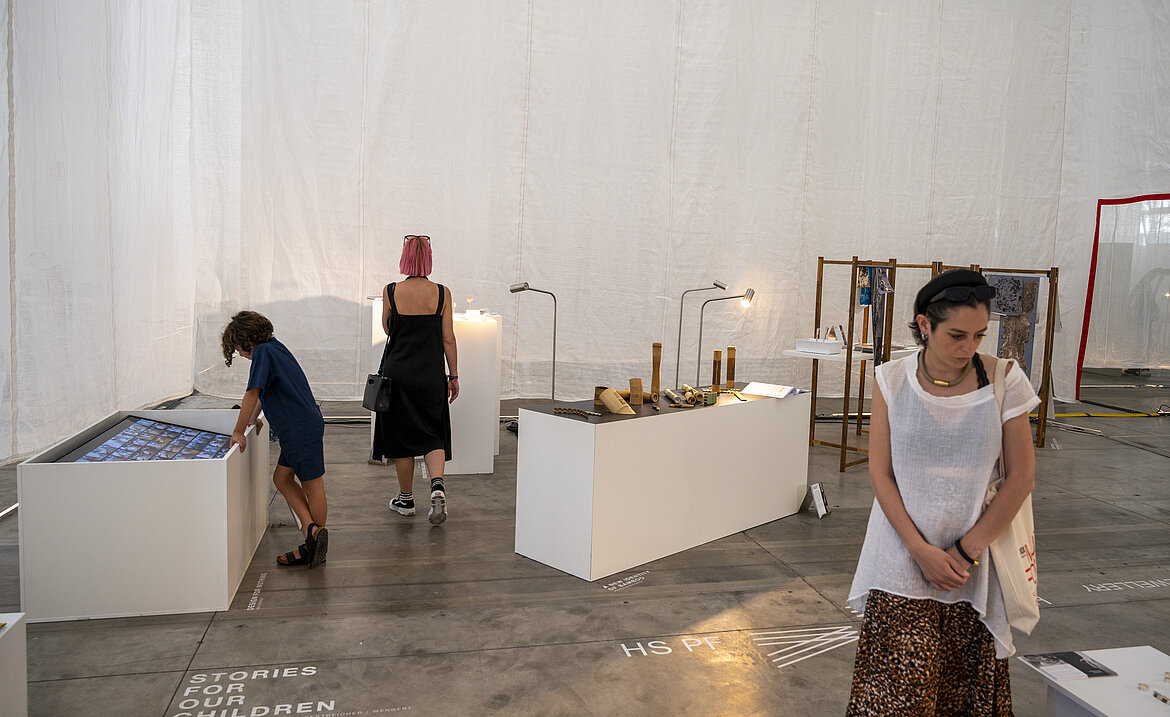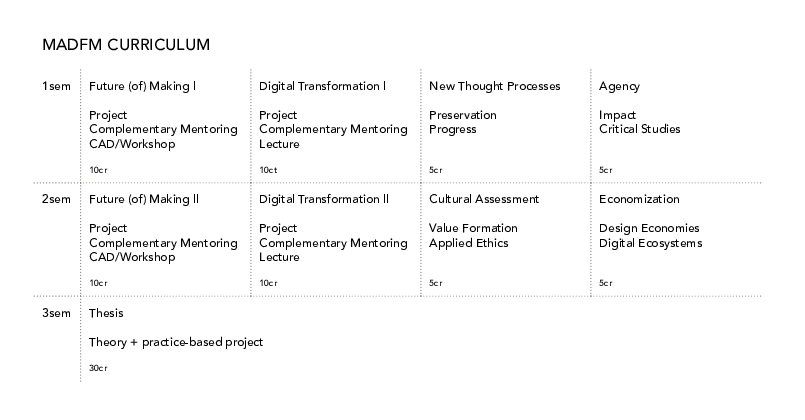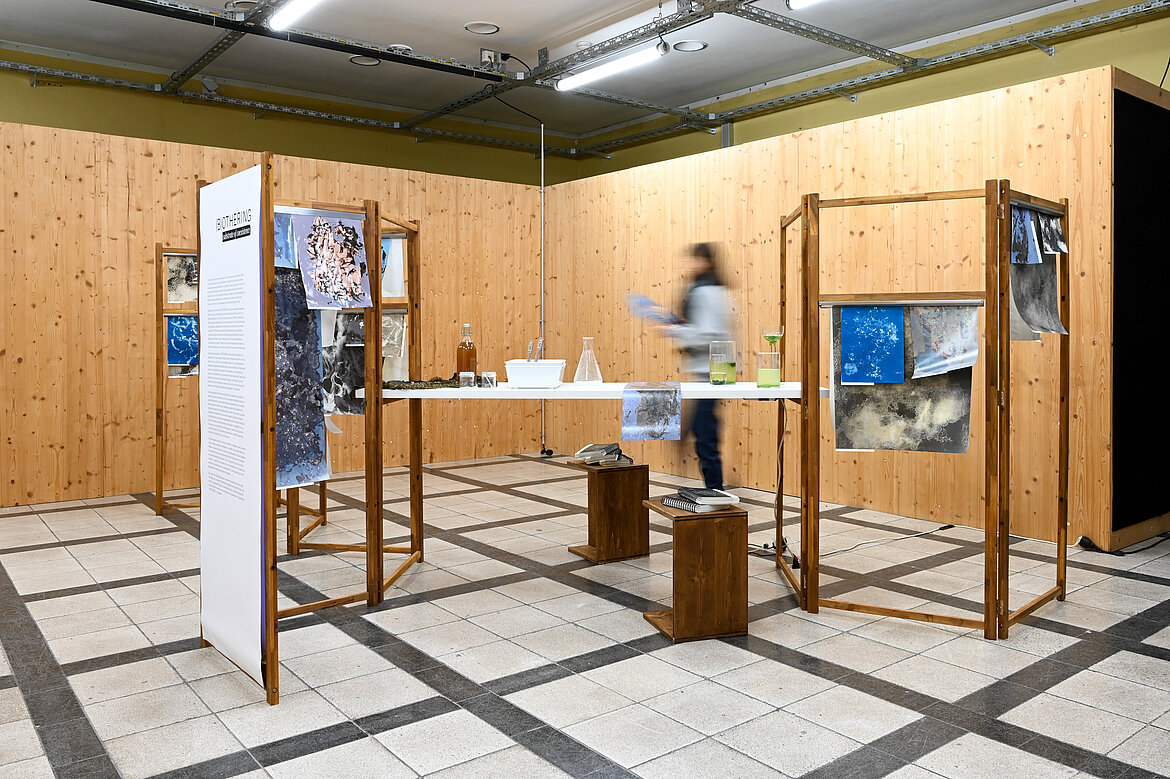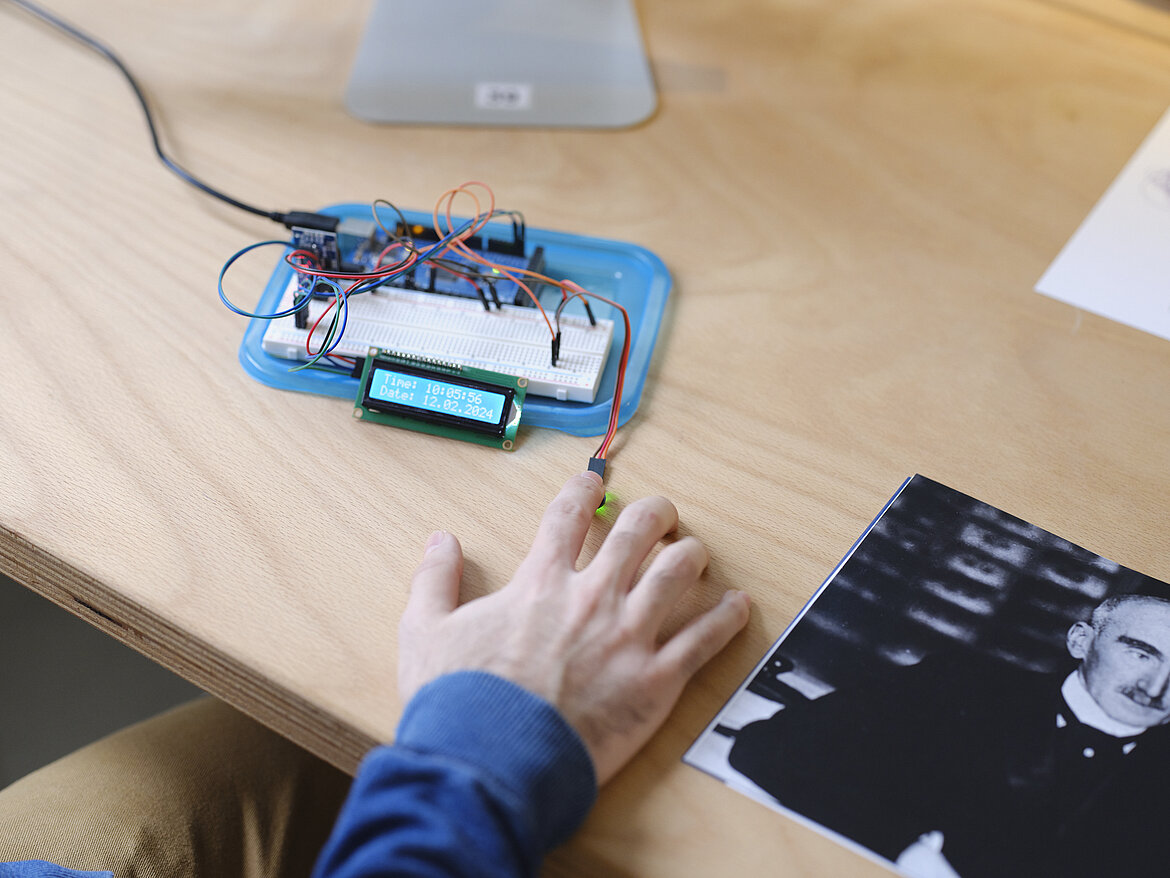MADFM: The program
The interdisciplinary position of the MA Design & Future Making embraces design as a cultural signifier and means of change. The USP of the program lies in three areas:
- Personal research theme: the core of the MADFM is a personal research theme that accompanies the entire program and whose various facets are explored and deepened in the Design (of) Future Making l and ll projects. The MA thesis represents a culmination of the exploration of this theme.
- Practical Intellect: Experimental research opens avenues for theoretical inquiry, which in turn fosters focused practical research avenues. Contributions from a wide range of thinkers in the arts and design sciences hone your skills in observing, analyzing, and reflecting on specific contexts, ranging from abstract philosophical questions to contemporary social and political imperatives. This allows for a complementary critical and research approach to craft and digital technologies, traditional and new materials, and the role of making [in] the future. Project work makes up at least two-thirds of the curriculum.
- Complementary Mentoring: mentor*s from the specific contexts of each project bring in subject-specific input that allows you to deepen and professionally position your work in that context.
Each semester consists of a mix of courses, seminars, workshops, and field trips. Regular courses and seminars are held primarily two and a half days per week. The remaining weekdays are reserved for independent study or project work, supervised by individual and group mentors.
The practice-based projects are supported by experts in the fields of jewellery, fashion, accessory design, industrial design, visual communication and art and are fostered through a critical thinking discourse. Trans-disciplinary connections to other disciplines at Pforzheim University, such as engineering, business and law, top off the programme.
Students have access to workshops for gold, silver, electroplating, wood, plastics, textiles and ceramics, as well as facilities for photography, screen printing and painting. All MADFM students are provided with workspace access as well. Beyond the university's offerings, the Northern Black Forest region, with its rich culture of small and large manufactories, provides opportunities for collaboration with industry, as well as connections to various research institutes, providing a wide range of research contexts.

